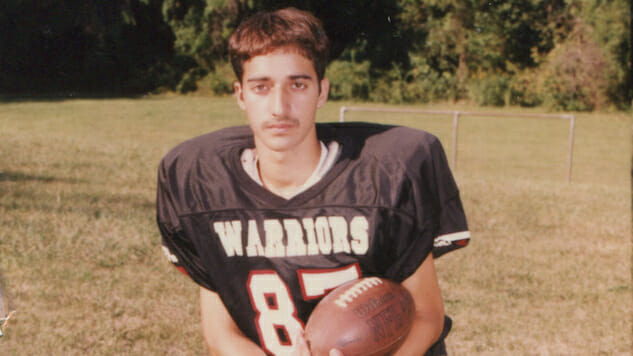7 Things You Need to Know About HBO’s Serial-Inspired Docuseries, The Case Against Adnan Syed
Photo: Syed family/HBO
The 1999 murder of Baltimore teenager Hae Min Lee is a tragic, horrific and—some have said— unsolved crime. That last adjective became a more common description of the case after the 2014 premiere of Serial: The podcast, hosted by The American Life producer and former Baltimore Sun reporter Sarah Koenig, explored whether the person convicted in the case, Lee’s classmate and ex-boyfriend Adnan Syed, was actually guilty. Reddit threads and cocktail party chatter ensued—and soon, those armchair sleuths will have more to talk about. On March 10, HBO will premiere The Case Against Adnan Syed, a four-part documentary about the case, directed by West of Memphis filmmaker Amy Berg.
Berg and others involved in the project spoke to journalists on Friday as part of HBO’s day at the biannual Television Critics Association press tour in Pasadena, Calif. Here’s what we learned:
Do we need a miniseries about this case after Serial?
“I think the goal of this series was always to get closer to the truth and, I think, by the end of this you’ll be much closer to the truth about what did or didn’t happen,” says Berg, who adds that she “wasn’t satisfied with the case as it was presented in 1999” and she wanted to know what really happened after learning about it through Serial. She still feels that way.
Hae Min Lee gets more of a voice in this miniseries.
One of the biggest complaints against Serial (and a lot of other true-crime productions) is that the murder victim is forgotten in the scramble to solve the whodunit. Berg says that she and her team attempted to contact Lee’s family through a Korean partner on the film (Lee was born in Korea and immigrated to the U.S. as a child), but they declined to participate. Instead, a family friend speaks on camera for them.
Berg stresses that “it was very important to bring Hae to life in this series.” She did that mostly by talking to Lee’s now-grown high school friends. They also had access to Lee’s journal, which begins around the time she and Syed began dating and ends the night before she disappeared. In The Case Against Adnan Syed, Berg’s assistant editor reads Lee’s entries while illustrations appear on screen. They tell this story in real time, according to those loggings.
Will the documentary explore unanswered questions surrounding Jay Wilds and Don Clinedinst?
Berg and her team did track down Clinedinst, Lee’s boyfriend at the time of her murder, but she says he declined to participate in the film because “his health is failing and he has two children and a wife.”
The documentary also shows that Wilds, the friend of Syed’s who was the linchpin of the prosecution’s original case, has amassed quite a rap sheet since he was questioned about Lee’s murder in 1999. Susan Simpson, a legal consultant working with the film, says that this is something Wilds has been running from his entire life, which is why his story has frequently changed and why he can’t return to Baltimore. These subjects are addressed on screen.
Will the media attention on this case hurt Syed?
In March 2018, the Maryland Court of Special Appeals vacated Syed’s conviction on account of ineffective legal counsel and granted him a new trial, which the state appealed. He is currently waiting on a seven-judge panel to decide on that question, following oral arguments last November. So, yes, lots more has happened since Serial debuted in 2014.
Simpson says it’s hard to judge how much the case’s publicity will impact the case because judges “aren’t going to be affected by a TV show,” but “what it does do is give more accountability to the process.”
For what it’s worth, Syed’s family friend, Rabia Chaudry—who was a pivotal force in Serial and who appears in HBO’s series—says Syed hears all the news about his trial and his popularity via the news or prison guards. He has hope that he’ll be released in the next couple years. But, she adds, “Systems protect themselves… Any time a wrongful conviction is successfully challenged, the system doubles down and triples down to try to protect itself.”
How does it feel to be part of a project that spear-headed the true-crime renaissance on TV and in podcasts?
Chaudry says she knows that “every wrongful conviction story is just an unsolved case.” She says it was never about being part of a product that “would launch 1,000 ships of podcasts.” She says “what Serial was made to do was bring the system into question and make people think that we shouldn’t have so much complete and utter trust in the system” and that “it’s helping exonerate people.”
There is also another benefit to this story.
“In the era of the Muslim ban and in the era when we have the highest anti-Muslim sentiment ever, [this] is a story that has resonated across the hearts of the country and the world,” Chaudry says. “This documentary is going to do that even further.”
About that title…
Doesn’t the title The Case Against Adnan Syed sound like it’s on the side of the prosecution? Berg says that “we used it as a working title early on” and “it just stuck better than any other title.”